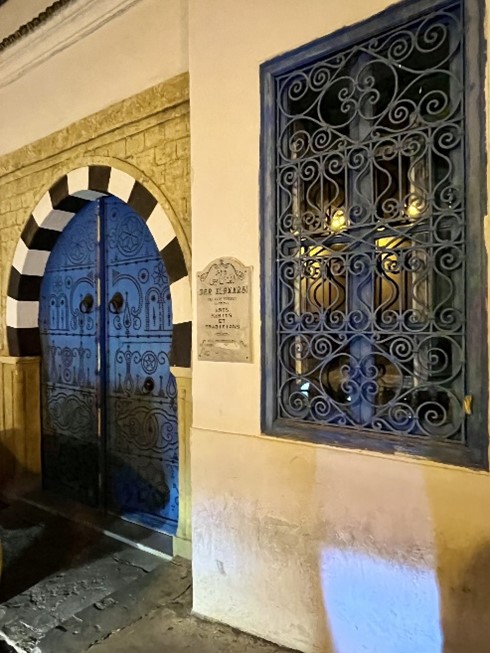
A Transdisciplinary Writing Programme for Emerging Scholars of Migration in Tunisia: Migrants in Transit
(12-15 September)
Earlier this month Dr. Federica Mazzara and Dr. Saskia Huc-Hepher, both Readers in the School of Humanities, helped lead a four day British Academy writing programme in Tunisia designed to foster early career researcher’s scholarship on migration within Humanities and Social Sciences. The report below on the workshops is written by Monia Channoufi, who is conducting doctoral research on the Tunisian diaspora in London as part of Westminster’s HOMELandS (Hub on Migration, Exile, Languages and Spaces) research hub.
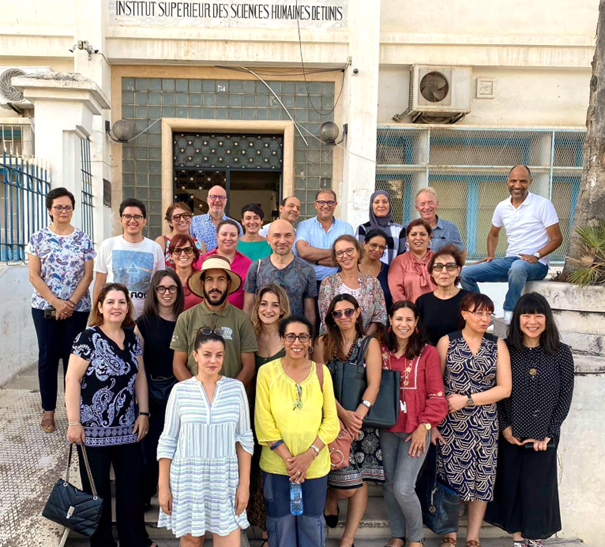
The workshop was hosted by the University of Tunis El-Manar, at the Higher Institute of Human Sciences of Tunis (ISSHT). It involved three workshop themes: Transit migration; Building Solidarity and Resistance through (digital) Representation; Meeting migrant women’s reproductive health needs.
The programme started by exploring the relevance of sustainable Development Goals (SDGs) for Tunisia’s social and economic progress. Representatives from local NGOs ̶ International Organization for Migration (IOM), Avocats Sans Frontières (ASF) and Terre d’Asile Tunisie ̶ were invited to a roundtable with Early Career Researchers (ECRs) from different disciplines, where they presented their projects and offered assistance to ECRs who are undertaking field research on transit migrants in Tunisia. Later, we had the opportunity to join one of the three streams relevant to our research papers. Parallel sessions were led by mentors who guided ECRs in identifying the aims and objectives of their papers and their potential contribution to knowledge.
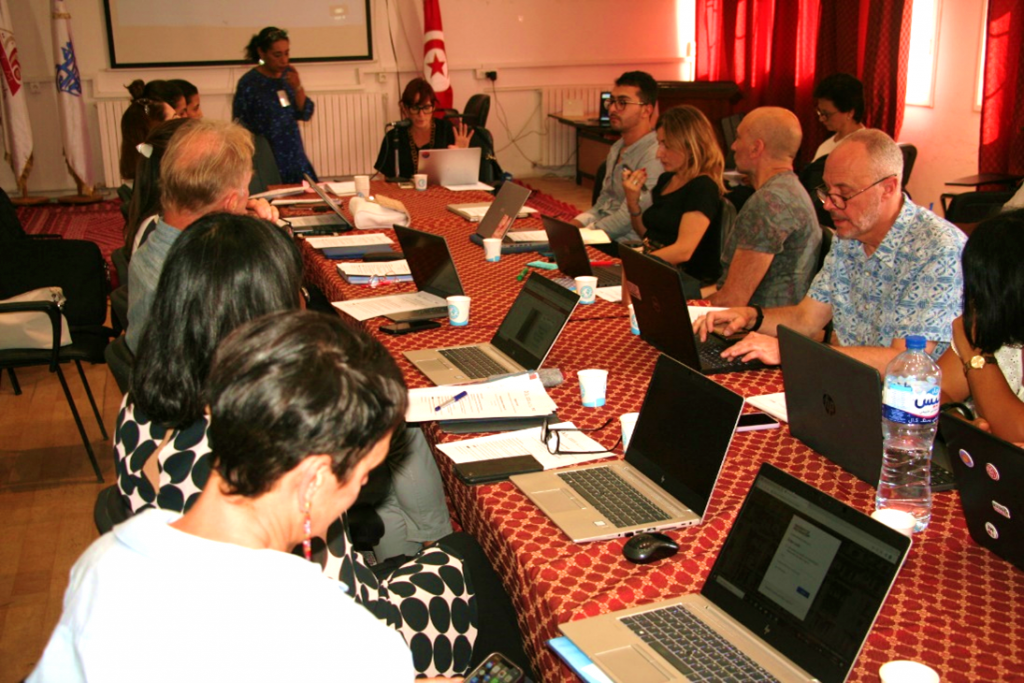
The second day of the workshop was very instructive, as we were introduced to one of the major challenges of publication, namely the desk reject. This session captured the interest of most of us and we were able to ask Professors Tim Freeman and Lilian Miles questions that will definitely help us avoid a desk reject when trying to publish in high-impact journals. The second session, which focused on revisiting the title and abstract of our papers, was equally engaging. The session was interactive and we learned tips on improving our paper titles in order to make memorable ones. Led by mentors we split into groups and reviewed the titles of each other’s papers to sharpen their focus and make them more attractive to a broader audience. Afterwards, we moved to the task of polishing abstracts, which was also helpful and relevant to all disciplines.
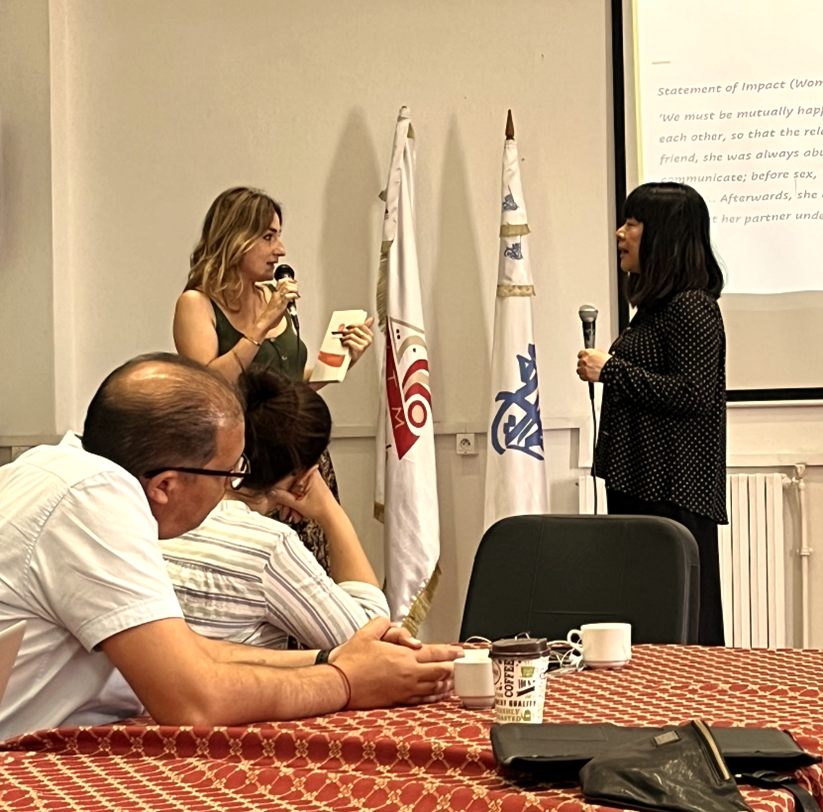
On the third day, we moved to the submission process. Nico Pizzolato outlined important issues related to the selection of journals and gave us tips on how to search for journals and choose the right one before corresponding with journal editors. Both Dr Saskia Huc-Hepher and Dr Nico Pizzolato raised our attention to the dos and don’ts in writing to journal editors. In the next session on writing a conclusion Tim and Lilian gave us key tools to writing a successful conclusion. In the afternoon session, ECRs had the chance to pitch their articles to one of the three journal editors relevant to their papers. This was a valuable opportunity for all participants to practise their pitching skills, and resulted in a good number of ECRs being given initial approval for submission by the journal editors!
The day ended with a networking dinner in the “Au bon vieux temps” restaurant, in the town of artists, Sidi Bou Said. All the ECRs, mentors and NGO representatives exchanged ideas and expanded on research and networking prospects, over traditional Tunisian food.
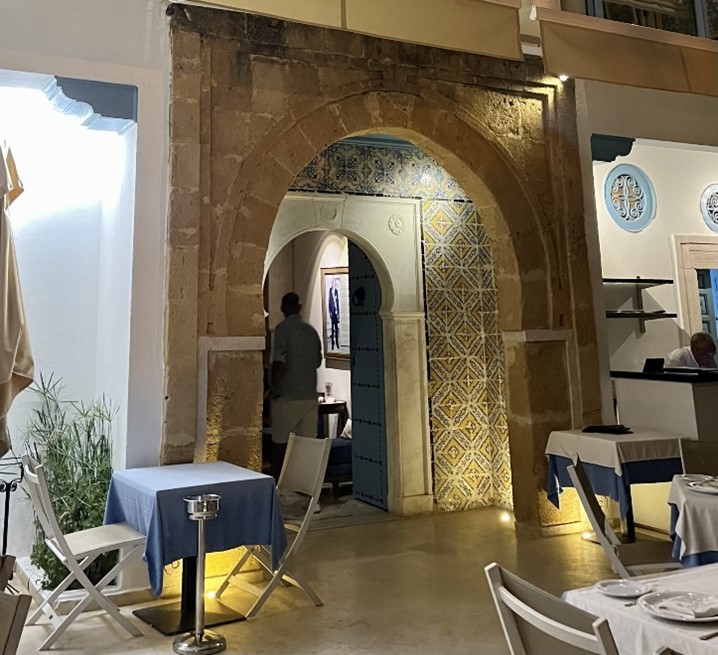
It was an occasion to invite key stakeholders including the President of the University of Tunis El Manar, Professor Moez Chafra, and Vice-President for Programmes, Training and Vocational Integration, Professor Fadila Darragi, with a view to involving the administrative staff in this international scientific and academic collaboration. In a convivial atmosphere, small groups and bigger circles were formed to discuss academia, cooperation, migration, and potential projects.
The last day of the workshop focused on issues related to the funding of research papers. In the first session, Saskia and Nico highlighted the key steps in constructing a funding application and how to get to grips with funder guidelines. The session captured the interest of participants, who shared their experiences in applying for research funds and the ethical implications involved in conducting field research. The discussion was informative and raised our awareness of the importance of ethical research.
This workshop was certainly interesting and well-organised. It covered all the challenges faced by researchers in publishing their work and gave us an opportunity to turn our ideas on transit migration into published articles.
